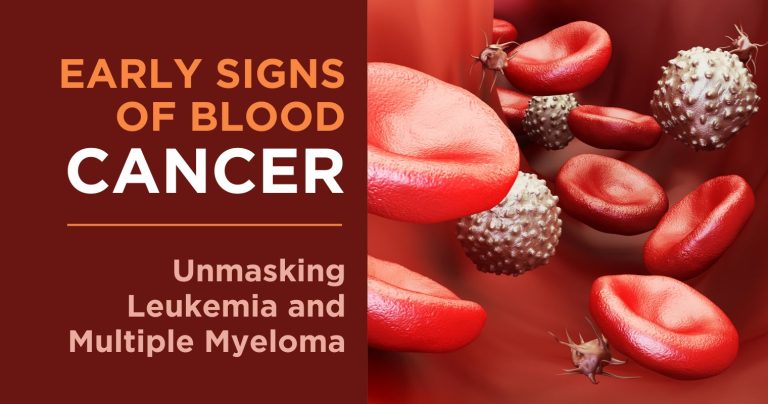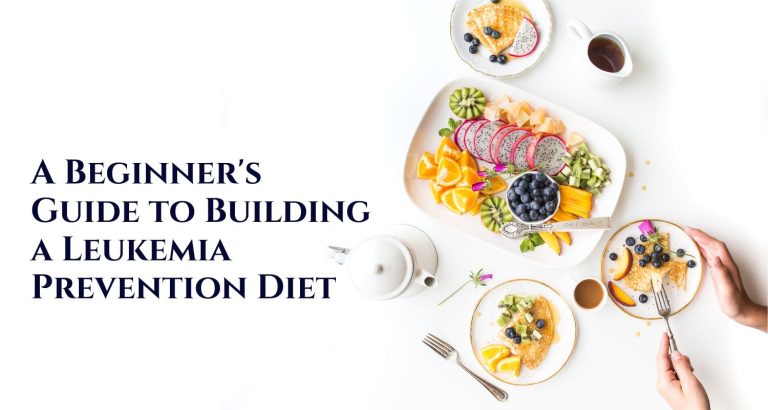10 Sleep Benefits You Can’t Ignore

In today’s fast-paced world, it’s too easy to underestimate the importance of a good night’s sleep. We often prioritize work, social activities, and screen time over rest, but the truth is that sleep is just as crucial as a balanced diet and regular exercise for maintaining our well-being.
In this blog, we’ll explore ten compelling reasons why you should prioritize and protect your sleep. Let’s dive into the fascinating world of sleep benefits.
1. Maintain or Lose Weight
Short sleep duration has been associated with an increased risk of obesity and weight gain. A 2020 analysis found that adults who slept fewer than 7 hours per night had a staggering 41% increased risk of developing obesity.[1]
The hormonal changes caused by sleep deprivation can lead to an increased appetite and a preference for high-calorie foods, making it harder to maintain a healthy weight.
2. Improved Concentration and Productivity
Sleep is essential for optimal brain function. It enhances cognition, concentration, productivity, and performance. One recent study revealed that overworked physicians with sleep-related impairment were up to 97% more likely to report clinically significant medical errors. [2]
The benefits of sleep extend to our problem-solving abilities and memory functions. Both children and adults experience remarkable improvements in these cognitive domains when they enjoy restorative slumber. This means that, after a good night’s sleep, you’re more focused and attentive and better equipped to tackle complex challenges and remember vital information.
3. Maximize Athletic Performance
The significance of sleep for enhancing athletic performance cannot be overstated. Various studies have consistently demonstrated that getting sufficient rest can improve a range of physical attributes and skills.
The benefits of sleep are not limited to the physical aspects of athletic performance. The mental game is equally vital, and here’s where sleep plays a vital role.
Sleep sharpens problem-solving skills, helps in strategizing better, and helps in making quick, smart decisions during a game or competition.
In contrast, not getting enough sleep can leave you feeling sluggish, demotivated, and unable to reach your full potential.
4. Strengthen Your Heart
Low sleep quality and duration have been associated with a higher risk of heart disease. A 2017 study suggests that sleeping fewer than 7 hours per night may even increase the risk of death from heart disease. The heart, like any other muscle, needs rest to perform at its best. [3]
Sleep also plays a role in maintaining healthy blood pressure levels. Short sleep duration has been linked to an increased risk of high blood pressure, especially in individuals with obstructive sleep apnea, a condition characterized by interrupted breathing during sleep.
Interestingly, it’s not just a lack of sleep that can pose a risk. Excessive sleep, defined as more than 9 hours a night, has also been associated with an increased risk of heart disease and high blood pressure. So, balance is essential; it’s best to aim for 7-9 hours for optimal heart health.
5. Affects Sugar Metabolism and Type 2 Diabetes Risk
Short sleep is closely associated with a greater risk of developing type 2 diabetes and insulin resistance, a condition where your body can’t use insulin properly. The more you skimp on sleep, the greater your risk.
A combination of 36 studies involving over 1 million participants revealed that very short sleep of fewer than 5 hours and short sleep of fewer than 6 hours increased the risk of developing type 2 diabetes by 48% and 18%, respectively.[4]
Notably, the risks don’t end with diabetes; insufficient sleep has also been linked to a higher likelihood of developing obesity, heart disease, and metabolic syndrome, all of which further elevate the risk of diabetes.
6. Poor Sleep is Linked to Depression
Mental health and sleep quality share a complex relationship, with one often influencing the other. Research consistently highlights the strong link between poor sleep quality and mental health issues, particularly depression.[5] Individuals with anxiety and depression are more likely to report poorer sleep scores than those without these conditions.
It’s not just general sleep quality that matters. Specific sleep disorders, such as insomnia or obstructive sleep apnea, are also associated with higher rates of depression.
Recognizing the connection between sleep and mental health emphasizes prioritizing rest as part of a self-care routine. A good night’s sleep can work wonders for your mood and emotional well-being.
7. Healthy Immune System
Lack of sleep has been shown to impair immune function, making you more vulnerable to infections. Studies reveal that individuals who sleep fewer than 5 hours per night are significantly more likely to develop colds.[6] Even those who sleep slightly longer (5-6 hours) face a substantially increased risk.
Sleep can also affect your body’s response to vaccines. Recent data suggests that getting enough sleep may improve your body’s antibody response to influenza vaccines.[7] In short, sleep is your body’s way of gearing up to fight against harmful bacteria and viruses. Prioritizing sleep is a proactive step toward maintaining a robust immune system and preventing illness.
8. Poor Sleep is Linked to Increased Inflammation
Sleep loss, mainly due to disturbed sleep, can activate inflammatory signaling pathways in the body. This results in elevated levels of inflammatory markers like interleukin-6 and C-reactive protein.
Over time, chronic inflammation can contribute to the development of various chronic conditions, including heart disease, obesity, specific types of cancer, Alzheimer’s disease, depression, and type 2 diabetes.[8]
Sleep plays a vital role in regulating the body’s central nervous and stress-response systems. Poor quality sleep can lead to increased inflammation, which raises the risk of developing these chronic health conditions.
9. Affects Emotions and Social Interactions
When well-rested, you’re better equipped to control emotional outbursts and manage your behavior in social situations. On the other hand, a lack of sleep can lead to difficulty controlling emotions, impulsiveness, and irritability.
Chronic sleep deprivation can lead to social withdrawal and loneliness. Those who are sleep-deprived are more likely to avoid social events and may experience feelings of isolation. This highlights the crucial connection between sleep and your social well-being.[9]
A good night’s sleep helps you interact more effectively with others, enhances your emotional control, and prevents social isolation. Sleep loss can impair your ability to regulate emotions and interact socially.
10. Lack of Sleep Can Be Dangerous
Insufficient sleep can pose serious risks to your safety, as well as the safety of others. Inadequate rest can have effects akin to those of alcohol intoxication, impairing your ability to focus, react, and make critical decisions.
The Centers for Disease Control and Prevention (CDC) reports that 1 in 25 people have fallen asleep at the wheel while driving. Those who sleep fewer than 6 hours are most likely to experience this dangerous phenomenon.
To put it into perspective, the CDC notes that staying awake for more than 18 hours is comparable to having a blood alcohol content (BAC) of 0.05%. After 24 hours without sleep, this BAC increases to 1.00%, which is well above the legal driving limit.[10]
Beyond the dangers of drowsy driving, sleep deprivation can also elevate the risk of workplace injuries and errors, making proper sleep a non-negotiable factor in personal and public safety.
Conclusion
Sleep is not just a passive state; it’s a dynamic process that plays a vital role in our physical and mental health. Prioritizing good sleep hygiene and understanding the benefits of sleep can lead to a happier, healthier life. So, make it a point to get those 7-9 hours of quality sleep each night and reap the rewards of a well-rested body and mind.
References
- Bacaro V, Ballesio A, Cerolini S, Vacca M, Poggiogalle E, Donini LM, Lucidi F, Lombardo C. Sleep duration and obesity in adulthood: An updated systematic review and meta-analysis. Obes Res Clin Pract. 2020 Jul-Aug;14(4):301-309. doi: 10.1016/j.orcp.2020.03.004.
- Trockel MT, Menon NK, Rowe SG, Stewart MT, Smith R, Lu M, Kim PK, Quinn MA, Lawrence E, Marchalik D, Farley H, Normand P, Felder M, Dudley JC, Shanafelt TD. Assessment of Physician Sleep and Wellness, Burnout, and Clinically Significant Medical Errors. JAMA Netw Open. 2020 Dec 1;3(12):e2028111.
- Krittanawong C, Tunhasiriwet A, Wang Z, Zhang H, Farrell AM, Chirapongsathorn S, Sun T, Kitai T, Argulian E. Association between short and long sleep durations and cardiovascular outcomes: a systematic review and meta-analysis. Eur Heart J Acute Cardiovasc Care. 2019 Dec;8(8):762-770. doi: 10.1177/2048872617741733. Epub 2017 Dec 5.
- Anothaisintawee T, Reutrakul S, Van Cauter E, Thakkinstian A. Sleep disturbances compared to traditional risk factors for diabetes development: Systematic review and meta-analysis. Sleep Med Rev. 2016 Dec;30:11-24. doi: 10.1016/j.smrv.2015.10.002. Epub 2015 Oct 21
- Oh CM, Kim HY, Na HK, Cho KH, Chu MK. The Effect of Anxiety and Depression on Sleep Quality of Individuals With High Risk for Insomnia: A Population-Based Study. Front Neurol. 2019 Aug 13;10:849. doi: 10.3389/fneur.2019.00849.
- Prather AA, Janicki-Deverts D, Hall MH, Cohen S. Behaviorally Assessed Sleep and Susceptibility to the Common Cold. Sleep. 2015 Sep 1;38(9):1353-9. doi: 10.5665/sleep.4968.
- Prather AA, Pressman SD, Miller GE, Cohen S. Temporal Links Between Self-Reported Sleep and Antibody Responses to the Influenza Vaccine. Int J Behav Med. 2021 Feb;28(1):151-158. doi: 10.1007/s12529-020-09879-4.
- Irwin MR, Olmstead R, Carroll JE. Sleep Disturbance, Sleep Duration, and Inflammation: A Systematic Review and Meta-Analysis of Cohort Studies and Experimental Sleep Deprivation. Biol Psychiatry. 2016 Jul 1;80(1):40-52. doi: 10.1016/j.biopsych.2015.05.014. Epub 2015 Jun 1.
- Dorrian J, Centofanti S, Smith A, McDermott KD. Self-regulation and social behavior during sleep deprivation. Prog Brain Res. 2019;246:73-110. doi: 10.1016/bs.pbr.2019.03.010. Epub 2019 Apr 10.
- Wells, Mary Ellen, and Bradley V. Vaughn. “Poor sleep challenging the health of a nation.” The Neurodiagnostic Journal 52.3 (2012): 233-249.






